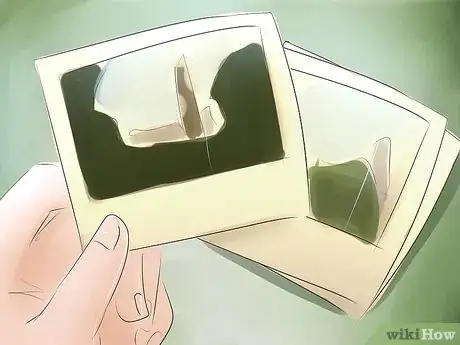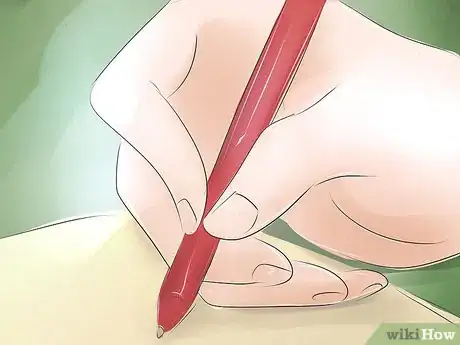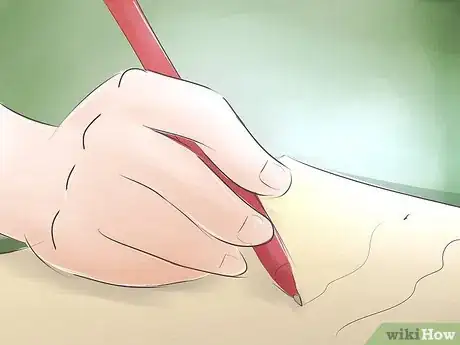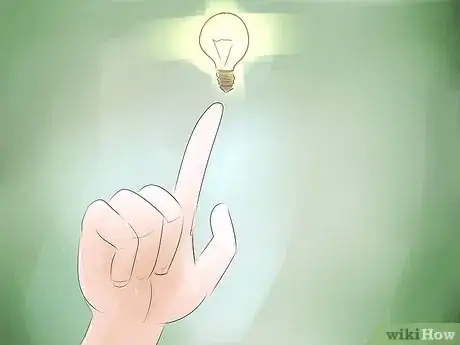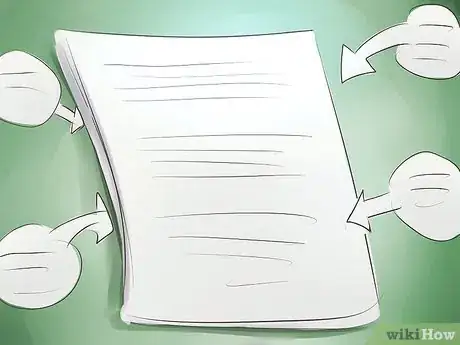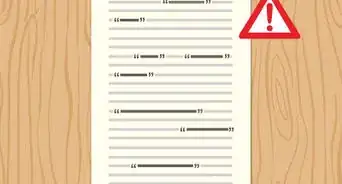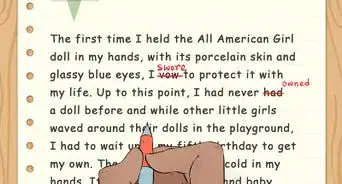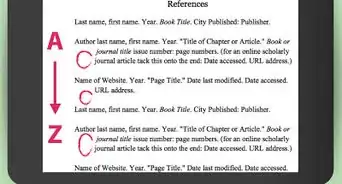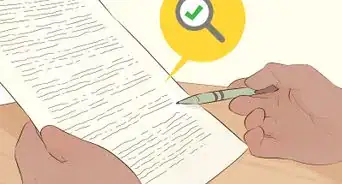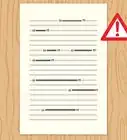wikiHow is a “wiki,” similar to Wikipedia, which means that many of our articles are co-written by multiple authors. To create this article, volunteer authors worked to edit and improve it over time.
There are 7 references cited in this article, which can be found at the bottom of the page.
This article has been viewed 89,270 times.
Learn more...
In a narrative essay, your thesis will be a bit different than in an argumentative or explanatory paper. A narrative essay is basically you writing a story for the reader. The purpose of a narrative essay is to make a certain point, using personal experiences or life events to convey your main point or theme.[1] However, just as in a standard paper, your thesis will still appear in the introduction of your narrative essay.
Steps
Part 1: Preparing to Write the Thesis
-
1Brainstorm ideas to find your topic. Ask yourself what idea or ideas you want to convey to your readers? Maybe you want to tell an uplifting story about achieving your goals or maybe you want to talk about the effects of grief on a person's psyche.[2]
- Come up with a topic that is important to you and that you feel you can talk about in a personal way.
-
2Pick an event to help convey your topic. Look through old photographs of your life, or read through your old journals to help find a personal event that relates to your topic.[3]
- Another way to find a personal event is to look through your old social media posts, as they often chronicle important or meaningful events in your life.
Advertisement -
3Write down all the details you can remember of that event. Use your five senses to help you tell your story. What did you see? What did you smell? What did you taste, hear, feel? All of those details will eventually make your story more vivid, even if you don't include every single detail.
- Remembering the details of the event through your five senses will also help to trigger other details or images you may have forgotten.
- For example, maybe you remember the taste of coconut after your grandmother's funeral, which will then help you remember that you all ate your grandmother's favorite coconut cake at the gathering after the funeral. You can then try to find that recipe and use it as a way to jog other memories of your grandmother.
-
4Create an outline for your narrative essay. Write down a rough idea of how you will tell the story. What will you begin with? What details or scenes will go in the middle? What scenes will go in the ending?[4]
Part 2: Creating Your Thesis
-
1Write a short phrase for each major section of your essay.[5] For example, if you are discussing your grandmother's death in the first section, you could write something like: “discuss grandmother's sickness.”
-
2Begin your thesis with the main idea or theme you are trying to convey in the essay.[6] A possible beginning may be: “In this essay, I will discuss the issue of grief.”
-
3Add examples to support your main theme or idea. Start by composing the simplest, most direct thesis and then edit it.
- For example: “In this essay, I will discuss the issue of grief by discuss my grandmother's sickness, discuss my grandmother's death, talk about what happened afterwards.”
- Adjust your first attempt so it is grammatically correct: “In this essay, I will discuss the issue of grief by discussing my grandmother's sickness, my grandmother's death, and what happened afterward.”
-
4Refine your thesis. Remove any repetitive phrases or words.[7] “In this essay, I will discuss the issue of grief by describing one of my personal life experiences, when my grandmother became sick and died and how I dealt with her death.”
- You may want to create a thesis that is a bit more sophisticated and less stilted by removing the more formal phrase, “I will discuss”.
- For example: “Grief affects everyone's life at one point or another, and it certainly has affected mine; when my grandmother became sick and passed away, I had to learn how to deal with the aftermath of her death.”
-
5Remember that your thesis should always cover the main topics of your essay. Think about how you can convey the main theme of your essay, as well as what you are planning to cover in each section, in your thesis sentence.
- Avoid packing too many ideas into one sentence. Your thesis should help ease the reader into your essay, not confuse them.
Community Q&A
-
QuestionCan your thesis statement be a question?
 Community AnswerA typical thesis statement is not a question. Often it is the answer to a question or prompt, in fact! However, you can consult an expert or a teacher, as each teacher may have different rules for essays.
Community AnswerA typical thesis statement is not a question. Often it is the answer to a question or prompt, in fact! However, you can consult an expert or a teacher, as each teacher may have different rules for essays.
References
- ↑ https://owl.purdue.edu/owl/general_writing/academic_writing/essay_writing/narrative_essays.html
- ↑ https://writingcenter.unc.edu/tips-and-tools/brainstorming/
- ↑ https://www.grammarly.com/blog/narrative-writing/
- ↑ https://www.indeed.com/career-advice/career-development/how-to-write-narrative-essay
- ↑ http://writingcenter.unc.edu/handouts/thesis-statements/
- ↑ https://owl.purdue.edu/owl/general_writing/the_writing_process/thesis_statement_tips.html
- ↑ https://writing.wisc.edu/handbook/process/thesis/

